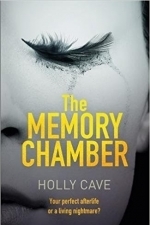
The Memory Chamber
Book
An afterlife of your own design, what could go wrong? The dark and gripping thriller from an...
Thriller
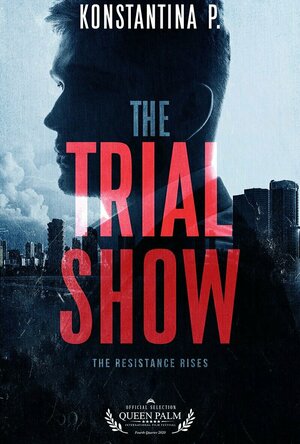
Tour: The Trial Show: The Resistance Rises
Book
Forced into the shadows while waging war on an oppressive regime intent on controlling those born...
Speculative Fiction Spy Thriller
Heather Cranmer (2721 KP) rated Black Mirror - Season 5 in TV
Jun 21, 2019
The first season was fantastic, and the second season wasn’t too bad. It’s like the Black Mirror writers are in a competition to make each season worst than the last.
It used to be speculative fiction, but even that is no more in season 5. I wish there were more than just 3 measly episodes especially with how long it took them to release season 5.
Striking Vipers was the worst episode in my opinion. To me, it focused too much on sex instead of the actual story which had the potential to be good.
Smithereens was the best episode in season 5 although it was just alright. At least there was a heartfelt story behind it all. Plus, the acting was fantastic for the most part. Yes, there were a few shoddy acting bits, but most of it was good.
Rachel, Jack and Ashley Too started off being a good episode, but it just turned ridiculous towards the end. It did start with a good message, but the ridiculousness of it turned this episode into more of a comedy. I guess they were just too focused on Miley Cyrus bringing in the viewers instead of the actual story.
I’m really losing hope for Black Mirror. They need to just stop making episodes or hire better writers.
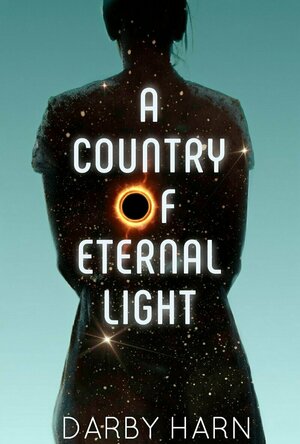
A Country Of Eternal Light
Book
"One of the most beautiful books I've ever read" - Sunyi Dean, author of The Book Eaters A rogue...
Speculative Fiction
Ross (3284 KP) rated Black Mirror - Season 1 in TV
Jan 8, 2018
The first episode sees the UK prime minister forced into considering an unpleasant act after a ransom demand from a kidnapper. It serves as a good representation of media coverage and their involvement in spreading panic and stoking outrage.
The next episode was a near-future look at a world where some classes of people spend their days on exercise bikes, presumably powering society. They are forced to watch endless hours of a small number of TV shows and are charged a fee to skip pop-up adverts for porn shows. The indictment of where society is headed, including the disposability of talent shows and how much more mandatory watching adverts could become, felt like something of a warning to turn back now!
The final episode revolved around people having the ability to instantaneously rewind and re-view moments of their lives and cast it to TV screens. The story looks at how this plays a part in a man's suspicions over his wife's faithfulness to their marriage. Similar to the previous 2 episodes, it shows that the technology, and people's reliance on it, does not help real life in any way, rather it further fuels suspicion and malcontent.
Three stories about the way the human race is headed told brilliantly.
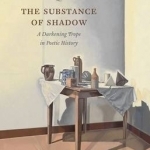
Substance of Shadow: A Darkening Trope in Poetic History
Book
John Hollander, poet and scholar, was a master whose work joined luminous learning and imaginative...
Bookapotamus (289 KP) rated No Less Days in Books
May 29, 2018
The premise of this story is really cool. I admit, it reminded me of that Blake Lively move, Age of Adeline, but WAY better. There was thought here, and it drew me in the second I started reading.
The main focus of the story is that David Galloway cannot die. It should have happened, many times. But nope. Still here... 100 some odd years later and still looking every bit a healthy 35 year old man. We learn a lot of David's history, as well as his present situation, and we wonder: How did he become this way? Are there others like him? Will he ever die? How does he live live without ever aging?
I read this book really fast as I honestly wanted to find out what would happen. Page after page, it kept me riveted. I would give it 5 Stars, but I had some issues with parts of the story. Particularly all the themes going on - some felt really unnecessary. There was a lot of mystery, racial stuff, domestic abuse, love stories, historical references, religion, murders, celebrity, books.... I'm probably missing more. I felt like too much was happening and a lot could be toned down or eliminated. And it's very obviously set up for a sequel, but the way this "strange character" just showed up and then left... felt really disjointed and out of place.
I'm also not a big Speculative Fiction reader as well as the Christian Fiction genre. I would have never bought this book and read it on my own. But that is how you lose certain generalizations about things, and find some of the best stories. I took a chance, and I won :)
I'm happy to have read this book. And I'm pretty sure this is a sequel in the works, and I'll most likely seek that one out to read!
Ross (3284 KP) rated Slow Motion Ghosts in Books
Jan 8, 2019
Jeff Noon is a writer of speculative fiction who has been on my reading list for some time (not through recommendation, but through finding his books in discount shops and liking the sound of them). Here he travels somewhat less speculative ground, telling the tale of a murder investigation during the aftermath of the Brixton riots of the early 80s.
The body of Brendan Clarke is found in unusual circumstances, with his face mutilated in certain odd patterns and with no apparent signs of struggle. The investigation into his murder leads the detectives to look into the earlier suicide of a Bowie-esque rock star as the links between the two are too big to ignore. There then follows an investigation into the cult-like group of misfit teenagers set up in Hastings and the cult status of King Lost, aka Lucas Bell.
There is the usual conflict within the investigative team - one jaded, opinionated DS, one DS that is hard-working and reliable and one DC that is off-screen most of the time researching things. An added element is the recent controversy surrounding DI Hobbes, as he recently shopped in his colleagues for battering a young black man in retaliation for the Brixton riots.
The main storyline is good, with enough mystery and emerging evidence to keep the interest. The link in to the past suicide of the cult figure adds an extra element. However it feels Noon went a little too far out of his way to make there a reasonable number of plausible suspects, all of whom are fairly interchangeable if I'm honest (I still can't remember which one of two characters died and which didn't).
It was interesting to read a crime book written about pre-Google times, so there really was a need for more hard work, door-knocking and evidence gathering.
There were some early incongruous events that came across as quite needlessly jarring, for example when someone says they can't remember what someone looked like, it was only a quick glimpse, can't remember anything at all and then somehow when asked about facial markings (apropos of nothing) suddenly remembered a facial tattoo. A couple of instances like that really took me out of the book.
All in all, this was a reasonably well-told crime book with a decent setting, but not exactly a ground-breaking storyline.
The Future
Book
The future is like an unwritten book. It is not something we see in a crystal ball, or can only hope...
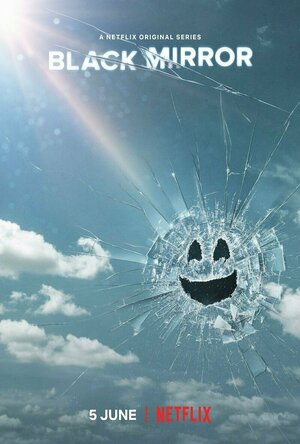
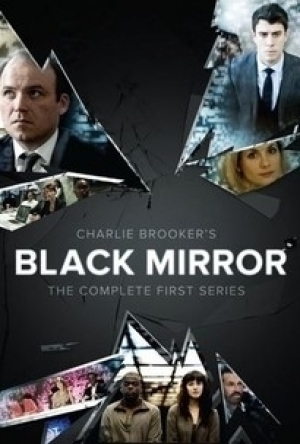


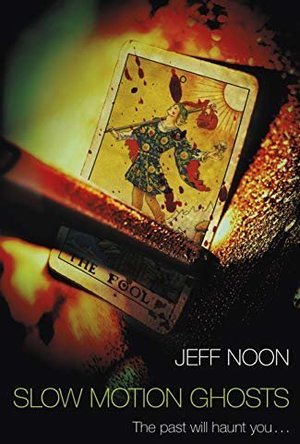
Eleanor (1463 KP) Jun 21, 2019
Heather Cranmer (2721 KP) Jun 21, 2019